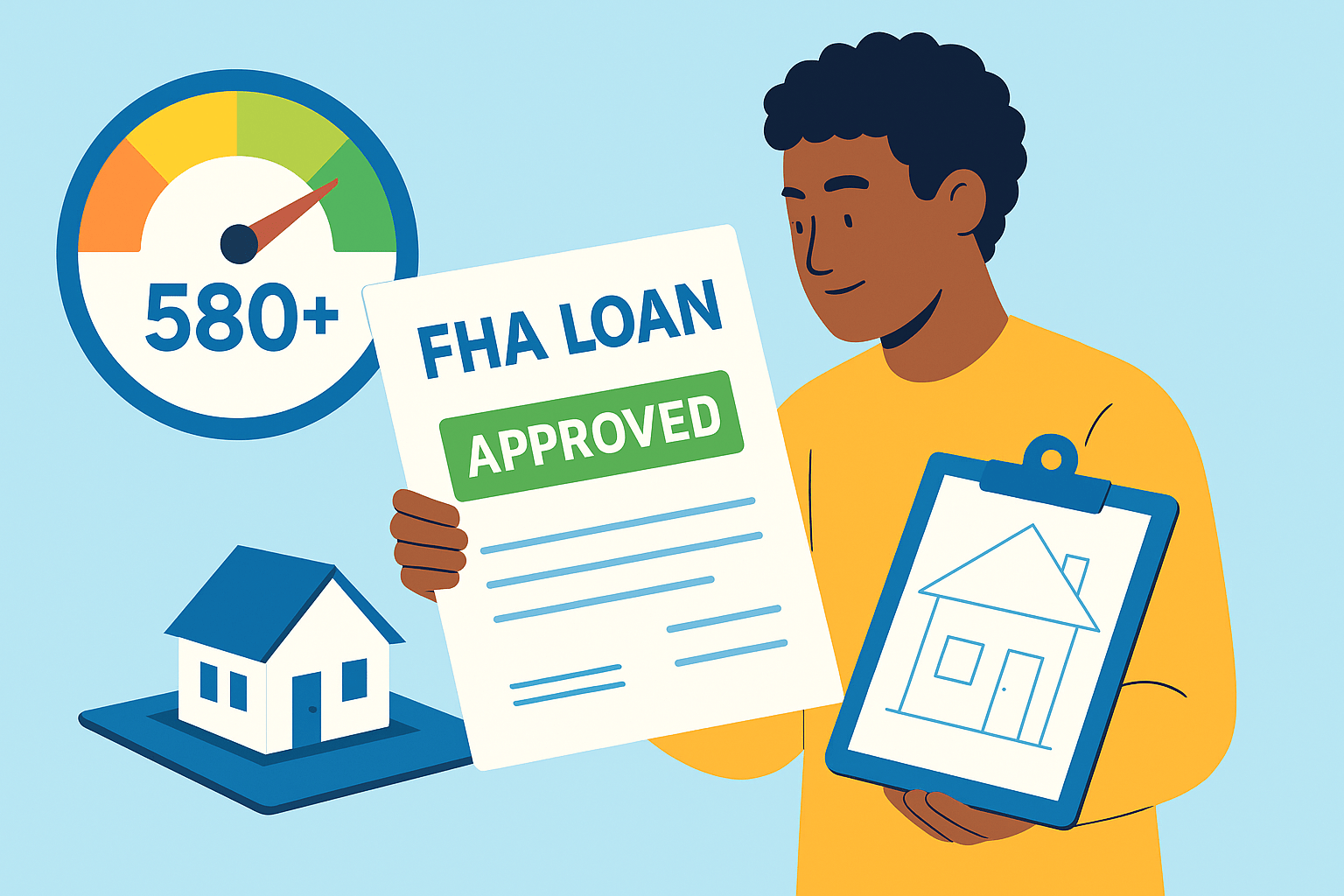Mortgage Credit Certificate First-Time Homebuyer Assistance Programs
Mortgage Credit Certificate: Missouri’s Hidden Gem for First-Time Homebuyers
Mortgage Credit Certificate (MCC)—the phrase may sound technical, yet for many Missourians it could mean the difference between renting forever and opening the front door to a home of their own. In under ten minutes, you’ll know how the Missouri MCC can shrink your federal tax bill, lower your effective mortgage payment, and position you for long-term financial stability.
Why Talk Taxes in a Home-Buying Blog?
Mortgage interest is already deductible, but deductions only lower taxable income. The Mortgage Credit Certificate transforms part of that interest into a dollar-for-dollar tax credit, which can be far more powerful. Implemented by the Missouri Housing Development Commission (MHDC) and authorized under IRS rules, the MCC program helps first-time buyers withstand today’s higher rates and rising home prices.
Recent HMDA data shows that roughly 28% of Missouri purchase loans in 2022 went to first-time buyers—a slice that would be larger if more households knew about the MCC. Consider this article your backstage pass.
Quick Snapshot of the Missouri MCC Program
- Credit Value: Up to 25% of annual mortgage interest (maximum $2,000 per year).
- Eligibility: First-time buyers, qualified veterans, or purchasers in designated target areas.
- Income & Price Caps: Vary by county; for example, in Boone County the 2023 income limit is $97,800 for a family of three or more.
- Portability: Credit applies for the life of the original loan—no need to re-apply each year.
- Program Fee: One-time 1% of the loan amount (can be financed).
Source: MHDC official guidelines (accessed Q4 2023).
How Does the Missouri Mortgage Credit Certificate Work?
The mechanics are simpler than a home inspection report. When you close on your mortgage, MHDC issues a certificate that states you can claim a federal income tax credit each year—generally 25% of the interest you pay, capped at $2,000. The remaining interest is still deductible, so you don’t lose that perk.
Let’s do a quick, conservative illustration:
- Loan Amount: $250,000 at 6.25% fixed.
- Year-1 Interest: ≈ $15,500.
- MCC Credit: 25% × $15,500 = $3,875, but capped at $2,000.
The $2,000 credit trims your tax bill directly. If you adjust your W-4 with your employer, you could see roughly $167 less withheld from each monthly paycheck, lowering your effective mortgage payment.
Micro-Story: Jordan & Maya Beat the Rate Hike
Jordan, a nurse from St. Louis, and his partner Maya, a freelance designer, watched interest rates jump from 3.5% to over 6%. Their lender introduced the Missouri MCC. By pairing the MCC with a 3% down FHA loan, their net monthly housing cost fell by about $140 even after the rate increase—enough to keep their house hunt alive. Six months later, they’re on a front porch, not a waiting list.
Who Is Eligible for a Missouri MCC?
Missouri uses a three-tier system: first-time buyers, veterans, and buyers in “target” census tracts get a shot at the program. Below are the core requirements with some lesser-known nuances.
- First-Time Buyer Definition: No ownership interest in a principal residence during the past three years.
- Income Limits: Adjusted annually and by household size.
- Purchase Price Caps: Approximately $311,980 in non-target areas; higher in target zones.
- Loan Type: Conventional, FHA, VA, and USDA loans typically qualify.
- Occupancy: Must occupy the home within 60 days of closing and use it as a primary residence.
Pro tip: Because the MCC sits beside your mortgage, the lender, not MHDC, usually vets your IRS Form 8396 readiness during underwriting, streamlining the process.
How Much Money Can You Really Save?
Savings hinge on loan size, rate, and how long you stay in the home. A 2023 Freddie Mac survey reports that the median tenure for new buyers is roughly 13 years. Multiply that duration by a $2,000 annual cap and the MCC could mean $26,000 in cumulative tax credits.
Even with smaller mortgages, the effect compounds. A $175,000 USDA loan at 6.00% produces about $10,400 in first-year interest. At 25%, the MCC credit tops out at $2,000 again—resulting in an 11.4% reduction of effective interest. That’s like trimming more than a full percentage point off your rate, without refinancing or paying discount points.
Can the Mortgage Credit Certificate Be Combined with Other Missouri Help?
Absolutely. Think of the MCC as the espresso shot in your home-buying latte. MHDC also offers First Place down payment assistance and Next Step loans. Pairing these with the MCC can shave upfront costs and ongoing expenses simultaneously.
Outside MHDC, many local municipalities—Kansas City’s Lift Program or Columbia’s Homeownership Assistance, for instance—allow stacking incentives. Lenders typically coordinate approval to make sure overlapping requirements (such as recapture tax disclosures) are met.
Recapture Tax: Monster Under the Bed or Paper Tiger?
Homebuyer message boards often mention a “recapture tax” tied to the MCC. Yes, the IRS can claw back some benefits if you sell within nine years and see both a significant income increase and capital gain. However, according to National Council of State Housing Agencies data, fewer than 0.04% of MCC holders actually pay the tax. Missouri even offers reimbursement in specific hardship cases.
Step-by-Step: Securing Your Missouri MCC
- Find a Participating Lender. Not every bank or credit union processes MCCs, so check MHDC’s approved list.
- Pre-Qualify & Confirm Eligibility. Income and purchase price caps are non-negotiable; verify them early.
- Complete the MCC Application. Usually folded into your loan package—no standalone submission needed.
- Pay the Issuance Fee. One percent of loan amount, rolled into closing costs or paid out of pocket.
- Close, File, & Adjust Withholding. After you receive the certificate, file IRS Form 8396 each year or modify W-4 to enjoy monthly savings.
Missouri MCC vs. Not Having One: A 5-Year Outlook
| Scenario | Annual Tax Credit | 5-Year Cumulative |
|---|---|---|
| With MCC | $2,000 (capped) | $10,000 |
| Without MCC | $0 | $0 |
That $10,000 could fund a new roof, wipe out private mortgage insurance, or seed a 529 plan—all from a benefit many buyers never hear about.
Other Questions Homebuyers Ask About the Missouri MCC
FAQ
Is the MCC credit refundable?
No. The credit can reduce your tax liability to zero but won’t trigger a refund by itself.
Can I use the MCC if I refinance?
The certificate is tied to the original mortgage. Refinancing voids it unless you qualify for a reissue—a process some lenders offer.
Do I have to itemize deductions?
You may claim the MCC credit whether or not you itemize. Any remaining interest can still be deducted if you do itemize.
Does the MCC affect state taxes?
The benefit is federal only; Missouri does not provide a parallel state credit.
Are condos and manufactured homes eligible?
Yes, provided they meet FHA, VA, or conventional guidelines and are classified as real property.
Ready to Turn Taxes into Keys?
The Mortgage Credit Certificate isn’t magic—it’s Missouri law. Yet like a secret menu item, you only get it if you ask. Whether you’re scanning Zillow in Springfield or touring bungalows in Blue Springs, talk to an MHDC-approved lender about the MCC before you sign a purchase agreement. Pair it with down payment assistance, and you may discover that homeownership is less “someday” and more “move-in day.”
Next step: Visit MHDC’s official MCC page, grab the county-specific limits, then schedule a call with a certified loan officer this week.
Explore More Blog Posts
Checkout more similar posts those will help you to choose better property.












 Profile
Profile Password
Password Saved Properties
Saved Properties Sign Out
Sign Out
 +0.01
+0.01
 -0.15
-0.15

